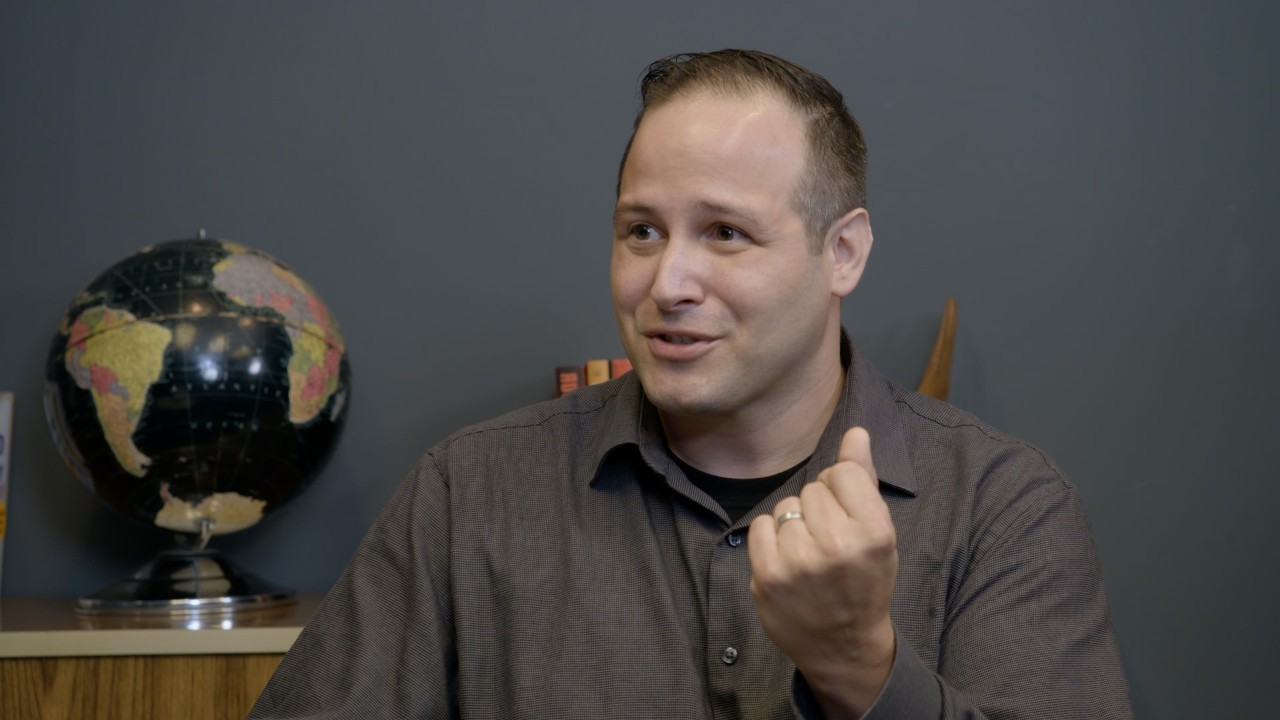AlphazetChronicles / Getty
Fighting Words is Tonic's opinion column. Send pitches to tonic@vice.com.Psychologists and psychiatrists have been searching for a cure for pedophilia for decades. But therapeutic efforts designed to convert attraction to children into attraction to adults have been elusive. Lately, the field has moved closer to the view that pedophilia is a type of sexual orientation—an innate characteristic that is highly resistant to change.One psychiatrist, Paul Fedoroff, of the University of Ottawa, takes a very different stance. In fact, he recently published a paper titled: "Can people with pedophilia change? Yes they can!"Fedoroff’s perspective is that pedophilia is not a sexual orientation; instead, he characterizes it as a “sexual interest,” or something that a person just happens to want to do sexually. Sexual interest, he says, is something that we acquire from learning, experience, and observation and, as such, is "changeable throughout life."Fedoroff actually goes as far as to say that "there is no evidence to suggest that sexual interest is different in terms of changeability compared to (for example) interest in vegetarianism, or kale or oysters." In other words, in his view, just as you can continually learn new food preferences, you can learn new sexual preferences (to be clear, though, he is not arguing that you can change your sexual orientation).So convinced of this idea is Fedoroff that he recently said in a book: “Now I routinely tell new patients [with pedophilia] that their prognosis is excellent and that they can expect to have no evidence of disease in less than a year.”But is there any evidence that pedophiles can indeed change? So far, there’s only one published study offering any support for this idea. That study, on which Fedoroff was an author, involved looking at 43 men who underwent genital arousal testing on two different occasions. At each testing session, participants listened to spoken erotic scenarios depicting children or adults while erectile changes were recorded with a penile plethysmograph, which is basically a ring that goes around the penis and measures changes in blood flow.All of the men showed a pedophilic arousal pattern at the first testing period, meaning they were turned on by the stories of children. However, about half of these men (49 percent) showed a change in their arousal pattern upon future testing: Their arousal to children went down while their arousal to adults went up. We can’t say why, however, because this wasn’t a treatment study. Participants were selected solely on the basis of having taken the test twice, regardless of whether they underwent treatment.Fedoroff points to this study, as well as a range of other evidence, to suggest that pedophilia is not "hard-wired" and, instead, is subject to change. For example, he also mentions the fact that, globally, reoffending rates among child sex offenders are relatively low and, despite population growth, child sexual abuse is dropping. If pedophilia weren’t changeable, he argues, we’d expect a higher rate of recidivism and more sex crimes. Similarly, he points to studies showing that sex offenders in general tend to lose their risk of reoffending over time, which he takes as evidence that their sexual interests are changing.
Watch this from VICE:
While Fedoroff is citing scientific studies, his interpretation of the data has been criticized, and some claim that the evidence he cites in support of his view is deeply flawed. James Cantor, a clinical psychologist at the University of Toronto who specializes in the treatment of pedophiles, has been a vocal critic. In a back-and-forth series of commentaries authored by Cantor and Fedoroff just published in the journal Current Sexual Health Reports, Cantor highlights major shortcomings in the 2014 study suggesting that pedophilia is changeable.For example, Cantor points to a 2016 reanalysis of those data, which concluded that there was “considerable measurement error” in the original study and that the results obtained don’t reflect anything other chance variability. The problem is that the method they used to categorize people with pedophilic interests has never been shown to be valid. In other words, there’s no supporting data demonstrating that it can accurately classify someone who is a pedophile. It’s also an outlier among studies assessing changes in pedophilic interests over time, most of which have pointed to high levels of stability.Not only that, but there’s a problem with the use of genital arousal measures to identify pedophiles, which is that these folks might be motivated to suppress their responses, perhaps because they desperately want to believe they have changed or because they want to convince their doctors they have. Studies have shown that non-pedophilic men can intentionally suppress erections when viewing erotic images simply by thinking about disgusting things, such as a filthy bathroom. Could it be that the pedophilic men who were showing changes in their arousal patterns were just trying to control their genital responses, meaning that they might not be showing true change in their attractions?As for Fedoroff’s points about rates of child sex abuse dropping and sex offenders losing their risk over time, Cantor highlights that this drop in sex crimes doesn’t necessarily mean that pedophilia itself is decreasing because not everyone who commits child molestation is a pedophile. Many people don’t realize this, but some adults who aren’t primarily attracted to children still commit sex crimes against them. In fact, most child molestors are not pedophiles. Plus, many pedophiles never commit sex offenses. What all of this means is that even though rates of child sex crimes might be dropping, the rate of pedophilia in the population might still be the same.That drop in sex offending that occurs with an individual over time doesn’t necessarily mean that people’s sexual interests are changing as they get older, either. It might simply be a function of the decline in sex drive that occurs as people age, which might make managing a deviant sexual interest easier.I reached out to Fedoroff for comment and he stands by his approach and the evidence he cites. He wrote: “Dr. Cantor is basically saying [to pedophiles] ‘your interests will never change so suck it up and learn to live without sex.’ [Our] approach is to say ‘there is hope that you can have non-harmful, sexual interests and a healthy, happy, lawful sex life.’”He went on to ask, “which approach is more likely to succeed? One in which people are told to ‘manage’ their ‘incurable’ interests…or one in which people are educated about the fact that they are responsible for their sexual behaviors and their therapy (individualized for them) is designed to help them change their interests so they no longer have ‘urges’ to harm children?”In a brief email exchange I had with Cantor, he said the following about attempts to convince people who are attracted to children that they can be cured: "It scares the shit out of me," he said. "It’s a ticking time bomb."Justin Lehmiller, PhD is a Research Fellow at The Kinsey Institute and author of the blog Sex and Psychology.Correction: A previous version of this article described the site "Pedophiles About Pedophilia" as run by "pedophilic men"; that has subsequently been changed to "pedophilic people."Sign up for our newsletter to get the best of Tonic delivered to your inbox.
Advertisement
Advertisement
Watch this from VICE:

While Fedoroff is citing scientific studies, his interpretation of the data has been criticized, and some claim that the evidence he cites in support of his view is deeply flawed. James Cantor, a clinical psychologist at the University of Toronto who specializes in the treatment of pedophiles, has been a vocal critic. In a back-and-forth series of commentaries authored by Cantor and Fedoroff just published in the journal Current Sexual Health Reports, Cantor highlights major shortcomings in the 2014 study suggesting that pedophilia is changeable.
Advertisement
Advertisement
In short, a closer look at the evidence suggesting pedophiles can change shows that it’s far from definitive. Cantor and others believe that the message Fedoroff is sending to pedophiles—that they can stop being pedophiles if they want—is going to prevent some of them from developing the skills they need to regulate their sexual urges so that they can avoid committing sexual offenses. In other words, some pedophiles might think they’ve been cured when they haven’t—and could get left without useful tools for managing their attraction to children.Canadian psychologist Michael Seto echoed these thoughts in a recent paper, in which he summed up the existing evidence by saying that the "expert consensus" in the field is that pedophilia and other unusual age-related attractions are "stable over time," which means that the focus of interventions should be on "management rather than 'cure.'"Notably, some pedophiles have even come out against the idea that change is possible. For example, the authors of the blog Pedophiles About Pedophilia, which is run by pedophilic people who do not want to act on their attractions, wrote that "giving this sort of false hope to pedophiles is dangerous and wrong."
Advertisement
